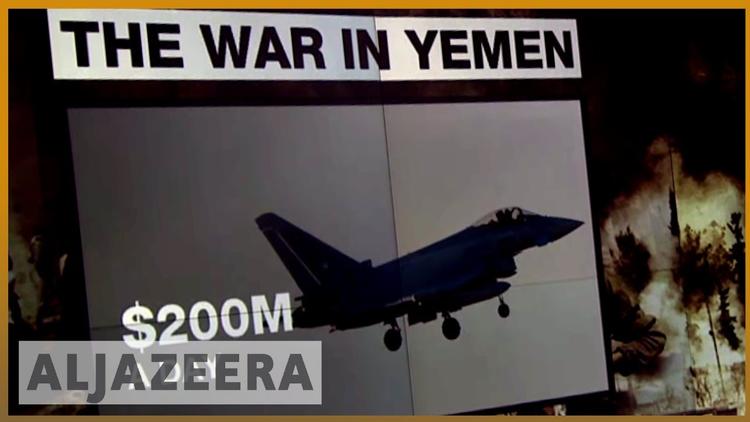According to a State Department leak to the New York Times, Secretary of State Mike Pompeo, when he was in Riyadh on Saturday, pressured the Saudi government to wind up the war in Yemen.
If this report is true, it is puzzling. In contrast, Secretary of Defense James Mattis has urged President Trump to stay the course in supporting the Saudi-led war on the Helpers of God (Houthi) government of North Yemen. The Houthis came to power in a 2014-2015 coup in Sana’a against the government of Abd Rabbo Mansour Hadi, which had been voted in by a February 2012 referendum in which 80% of the electorate voted “yes.” Mansour Hadi succeeded ousted longtime dictator Ali Abdullah Saleh. The Houthi coup was in part Saleh’s doing, and his loyalist faction in the Yemen regular army allied with the Houthis until last fall when they had a falling out and Saleh was killed.

Saudi Arabia, the UAE, and other allies have been bombing Yemen intensively and blockading its northern port of al-Hodeida since spring, 2015, in reaction against the Houthi coup. The Helpers of God are from a rural Zaydi background. Saudi Wahhabis hate the Zaydis and refuse to accept their dominance of northern Yemen. Saudi Arabia had been attempting to dominate Yemen itself through aid to the Saleh government, and had attempted to proselytize the Zaydis into Wahhabism, which provoked the Zaydi backlash.
Zaydis are classed as Shiites but they are really in between Sunnis and Shiites and completely different from the Twelver Shiites of Iran and Iraq, who have in history typically denounced them as heretics. The Saudi Arabian propaganda line that the Houthis are Iranian cat’s paws is completely implausible, and Iranian aid to the Houthis has likely been minimal. In contrast, the US and Europe have supplied billions of dollars of weaponry to Saudi Arabia, which it has used indiscriminately on schools, apartment buildings, hospitals, bridges, ports and wedding parties. At least a third of the victims of Saudi airstrikes have been estimated to be civilians, and millions of civilians have been made food insecure.
The United States, both under Obama and Trump, has bought into the horrible war on Yemen, which doesn’t even make any sense (fighting a guerrilla war with air strikes?) The US military has given logistical help and strategic advice.
When Sen. Bernie Sanders and others, including Republicans in the Senate, mounted a challenge to US participation in the Yemen War, it was beaten back by Mattis and the Pentagon. But the unhappiness of the Senate was apparently noticed by Pompeo.
The Libertarian wing of the Republican Party is particularly disgruntled with US involvement in Yemen, and Sen. Rand Paul pressed Pompeo on it during his confirmation hearing. Sen. Paul, who serves on the Foreign Relations Committee, had been planning to vote against Pompeo, but was convinced by President Trump to change his vote. One has to wonder whether an attempt to disentangle the US from Yemen was a quid pro quo.
Further, Pompeo’s long-time backers include the libertarian billionaire Koch brothers. My analysis of them is that they tend to be against big foreign adventures like the Iraq War, since those require tax dollars and grow the US government, and moreover released more oil on the market, with the potential for reducing its price. The Koch brothers are in the oil business and want more profits, not less. But it may be that the Kochs also did not like the 2015 UNSC Iran deal because it lifted the boycott on Iranian oil and put more on the market, contributing to low prices ever since. (Iran is back up to exporting 2.5 million barrels a day, up from 1.5 million during the severe sanctions). That is, the Kochs may not want a war on Iran but they’d like to see it back under sanctions, which is what Pompeo is now attempting to accomplish.
It is also the case that US participation in the Yemen war is a public relations nightmare in the region, and Pompeo gets that in a way that Mattis does not.



 © 2026 All Rights Reserved
© 2026 All Rights Reserved